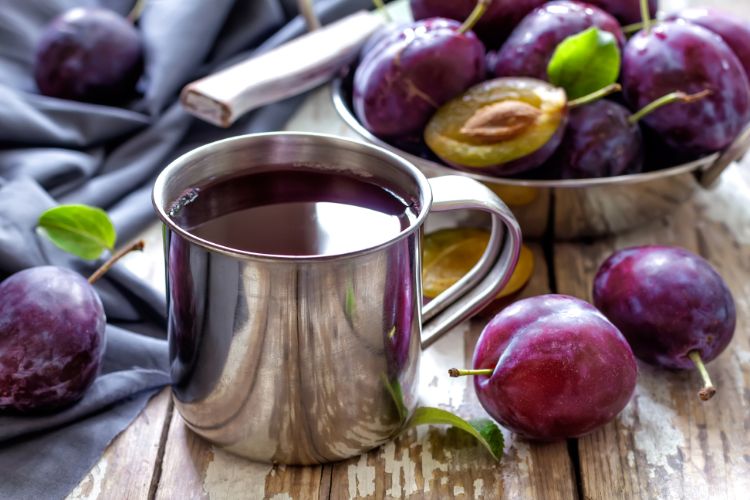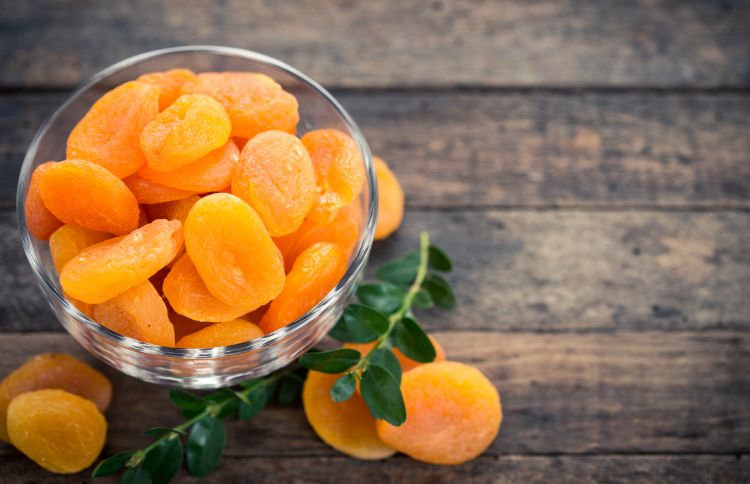Did you know that everyone fourteen years of age or older should consume 4,700 mg of potassium each day? The National Institute of Health describes potassium as an essential mineral that is available in most of the foods we eat. When an individual does not get enough potassium in his diet, the body will send warning signs.
Symptoms of low potassium, according to the Mayo Clinic, include fatigue, weakness, constipation and muscle cramps. Although not as common, heart palpitations (arrhythmias), are also reported as a symptom of low potassium. A blood test can determine potassium levels; your physician may encourage you to eat potassium-rich foods.
Advertisement
To reduce your risk of low-potassium related illness, it's vital to increase your intake of this nutrient. Here are 15 potassium-rich foods you should know about and incorporate into your daily diet.
1. Sweet potato. "A nutritional bargain," is how sweet potatoes are described in a publication by North Dakota State University. A 5 oz. sweet potato contains 21 percent of the daily recommendation for potassium, or approximately 694 mg of the nutrient. Bake sweet potatoes or add them to soups, casseroles or stews.

mama_mia / Shutterstock
2. Plain low-fat yogurt. Quick and easy to eat, with no preparation required, one 8 oz container of plain yogurt contains 531 mg potassium. Most dairy products are rich in potassium. Potassium helps to maintain healthy blood pressure, according to the United States Department of Agriculture.

baibaz / Shutterstock
3. Bananas. Just the word "potassium" makes the average person think of bananas. On average, one medium-sized banana contains approximately 422 mg of potassium. In fact, bananas are loaded with vitamins, minerals and fiber; they're beneficial to your overall health.

Paulo Vilela / Shutterstock
4. Prune juice. If you've already experienced the symptom of constipation associated with low potassium, drink prune juice. Since ancient times, prunes were used to cure many different ailments, including constipation. Can you believe 3/4 cup of prune juice contains 530 mg of potassium? You may learn to love the taste when you reap the benefits of this beverage.

Sea Wave / Shutterstock
5. Tomato Paste. Tomatoes, particularly processed tomatoes like sauces and pastes, have lycopene (a natural pigment that gives tomatoes their red color). Studies show that lycopene may actually lower the risk of certain types of Cancer, according to the National Cancer Institute. Add 1/4 cup of tomato paste (664 mg of potassium) to your favorite recipe to increase potassium in your diet and promote good health.

Africa Studio / Shutterstock
6. Spinach. Rich in iron and magnesium, pair 1/2 cup of cooked spinach with fish or a lean piece of meat for 419 mg of potassium. Spinach is also high in antioxidants and folate, which protects cells and promotes DNA duplication and repair. Eat raw spinach in a salad, or cook it with another potassium-rich food source.

Sunny Forest / Shutterstock
7. Orange juice. Freshly squeezed or commercially bought, orange juice contains potassium. Begin each morning with a 3/4 cup of orange juice and you'll add 355 mg of potassium to your breakfast. Orange juice is also a good source of folate and thiamine, two B-complex vitamins necessary for good health.

Carlos Horta / Shutterstock
8. Canned white beans. A mere 1/2 cup of white beans contains 595 mg of potassium. It only makes sense to add a can of white beans to your favorite meal. White beans are a good source of plant protein and they're rich in iron and zinc, too.

Gayvoronskaya_Yana / Shutterstock
9. Cooked Pacific cod. Cold-water fish are rich in omega-3 fatty acids, and Pacific Cod is loaded with potassium, too. A 3 oz. piece of cooked Pacific Cod contains 439 mg of potassium. Bake or broil fish, rather than fry it, to promote a healthy heart.

hungryworks / Shutterstock
10. Dried, uncooked apricots. Increase your potassium intake with 1/4 cup of dried apricots. This snack adds 378 mg of potassium to your daily diet. Store dried apricots in a small container and eat them throughout the day.

pilipphoto / Shutterstock
11. Milk. Calcium is an important part of a daily diet, but did you know that 1 cup of non-fat milk contains 382 mg of potassium, too? Most milk is fortified with vitamin D, which benefits bone health. According to the Office of Disease Prevention and Health Promotion, adults should consume 2 to 3 servings of dairy, including milk, per day.

Sea Wave / Shutterstock
12. Lean, center rib, roasted pork loin. Add 371 mg of potassium to your diet when you eat a 3 oz. portion of roasted pork loin. Pair the meat with a leafy green vegetable, such as spinach, and you'll add even more potassium to your meal.

gkrphoto / Shutterstock
13. Canned clams. One 3 oz can of clams contains 534 mg of potassium. Clams are a low-fat source of protein and they're a good source of iron. Pair canned clams with linguine or make your favorite clam dip.

Dulce Rubia / Shutterstock
14. Beet greens. Who eats the greens of beets? A lot of people. 1/2 cup cooked beet greens includes 655 mg of potassium. Known as a beneficial source of protein, zinc, phosphorus and vitamin B6, beet greens are loaded with antioxidants.

natalia bulatova / Shutterstock
15. Lentils. A lot of soups and "peasant" dishes consist of cooked lentils. High in fiber, each 1/2 cup of cooked lentils contains 365 mg of potassium. Lentils also have properties that play an important role in preventing degenerative diseases in humans, according to The National Center for Biotechnology Information.
Advertisement

GMMaria / Shutterstock

